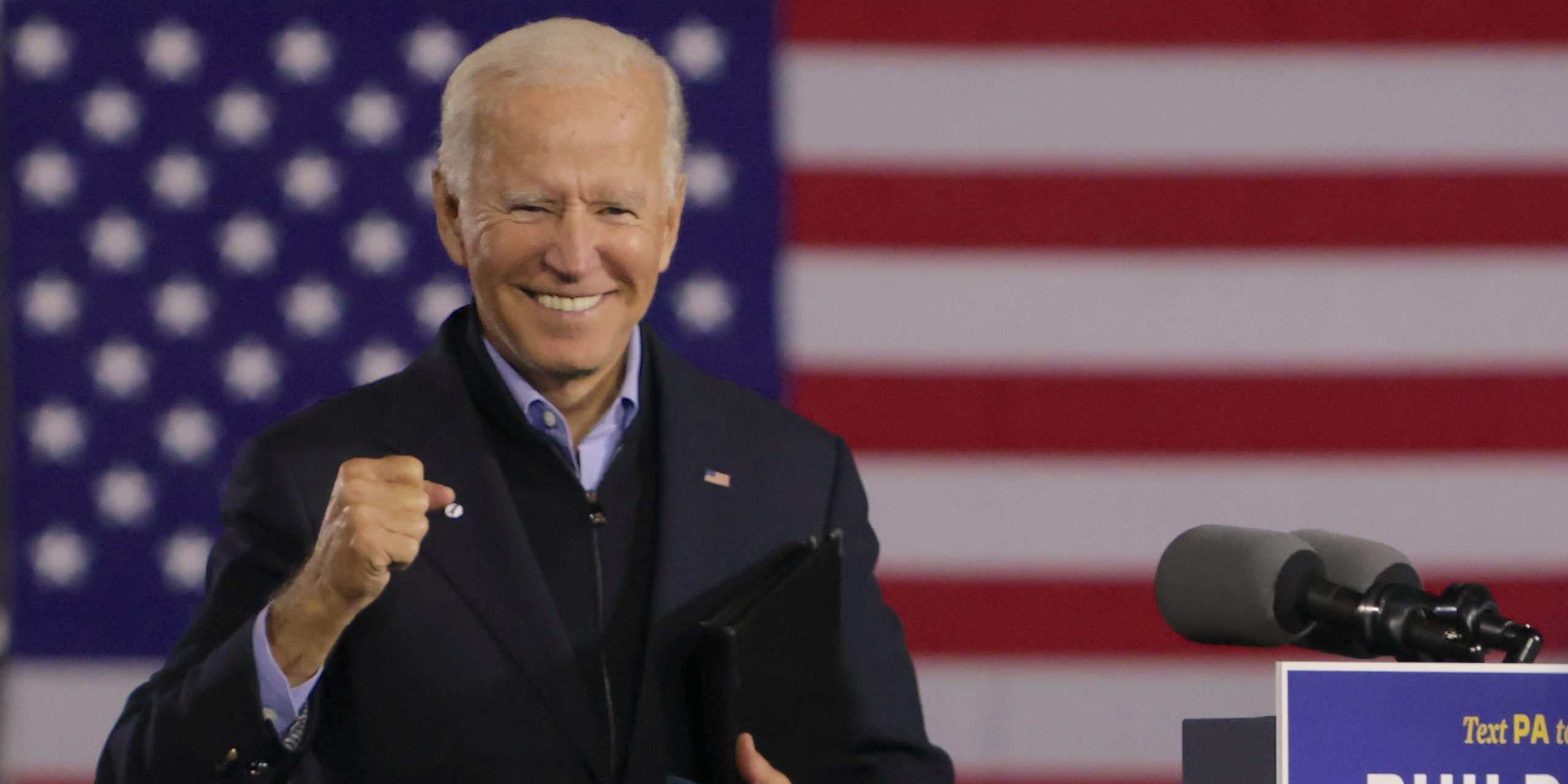
Getty
- A so-called blue wave this November led by Joe Biden, the Democratic presidential nominee, would lead to a surge in economic growth, according to Goldman Sachs’ chief economist, Jan Hatzius.
- Goldman said in a note on Monday that Democratic control of the presidency and Congress would raise the probability of enacting a fiscal stimulus package worth at least $2 trillion.
- Longer-term spending measures proposed by Biden targeting infrastructure, climate, healthcare, and education would also help boost economic growth prospects, Goldman said.
- Visit Business Insider’s homepage for more stories.
Polling following last week’s presidential debate has suggested that a so-called blue wave led by Joe Biden, the Democratic nominee, is becoming more likely, Goldman Sachs’ chief economist, Jan Hatzius, said in a note on Monday.
Democratic control of the presidency, the House, and the Senate would likely lead to a surge in economic growth, according to Goldman, as it would give Biden and his party more latitude to pass their legislative agenda.
If Biden wins in November, the probability of enacting a fiscal stimulus package worth at least $2 trillion shortly after Inauguration Day would sharply increase, Goldman said.
That would help boost short-term economic growth, but longer-term growth forecasts would be lifted by proposed increases in spending on infrastructure, climate, healthcare, and education, the note said.
Those spending increases would "at least match the likely longer-term tax increases" on corporations and higher-income earners, Goldman said.
Assuming the Federal Reserve leaves rates unchanged until the economy reaches full employment and inflation is just above 2%, "we estimate the net effect of the [Biden] package would be a frontloaded increase" to economic output "as well as a more backloaded boost to core PCE inflation," Goldman said.
Still, a blue wave would have "mixed implications" for US stocks, as Biden is advocating a 7-percentage-point increase in the corporate income-tax rate, to 28% from 21%, Goldman said.
But investors should also expect from a blue wave "easier US fiscal policy, a reduced risk of renewed trade escalation, and a firmer global growth outlook," Goldman concluded.
